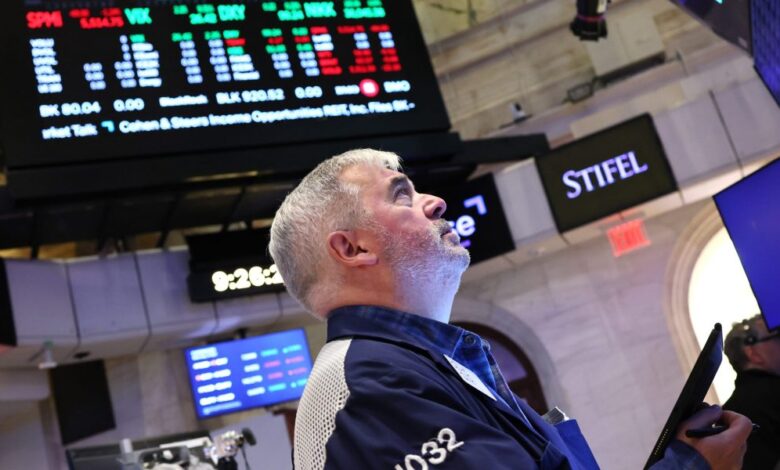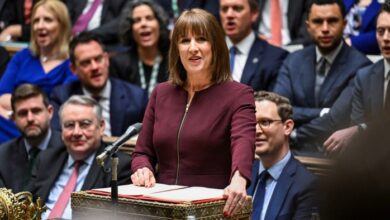Stocks may snap longest winning streak in 20 years as futures dip while OPEC+ crushes oil prices


- Stocks futures pointed slightly lower Sunday evening, with the S&P 500 signaling that its longest winning streak in 20 years may come to an end. That’s despite President Donald Trump hinting at a willingness to lower tariffs on China. Crude oil prices tumbled after OPEC+ agreed to expand production further.
U.S. stock market futures dipped Sunday night, putting the S&P 500’s winning streak at risk after the broad market index recouped losses triggered by President Donald Trump’s “Liberation Day” tariffs.
Futures for the Dow Jones Industrial Average slipped 121 points, or 0.29%. Futures for the S&P 500 lost 0.35%, and Nasdaq futures eased 0.33%.
On Friday, the S&P 500 advanced for the ninth consecutive session, marking its longest stretch of gains in 20 years and putting it back to where it was on April 2, when Trump unveiled so-called reciprocal tariffs on trading partners around the world.
The steeper-than-expected duties triggered a massive selloff in stocks, bonds and the U.S. dollar. But since then, Trump and his administration have granted delays and exceptions while also hinting that several trade deals are imminent.
In an interview that aired on Sunday, Trump said he is willing to lower his prohibitively high tariffs on China, which has retaliated with similarly steep duties as well.
“At some point, I’m going to lower them, because otherwise, you could never do business with them, and they want to do business very much,” Trump said on NBC’s Meet the Press.
Meanwhile, U.S. crude oil prices were down 3.6% at $56.19 per barrel on Sunday, nearing levels that the shale sector has warned would crush the industry.
That’s after OPEC+ agreed on Saturday to add 411,000 barrels a day next month, following a similar increase last month.
Analysts have said that Saudi Arabia, OPEC’s swing producer and de facto leader, is frustrated with other members that are pumping beyond their quotas and seeks to enforce more discipline by sending crude prices sharply lower, which Riyadh can endure more than other producers can.
Meanwhile, the 10-year Treasury yield ticked down 1.2 basis points to 4.308% ahead of the Federal Reserve’s policy meeting this coming week.
The central bank isn’t expected to adjust benchmark rates, especially after the Friday’s jobs report came in stronger than expected. Fed officials have also indicated they are waiting to see how tariffs will impact inflation.
While Trump has repeatedly called on Fed Chair Jerome Powell to lower rates and said his termination “can’t come soon enough,” the president told NBC that he doesn’t plan to fire him, saying he is going to name a replacement anyway.
This story was originally featured on Fortune.com
https://fortune.com/img-assets/wp-content/uploads/2025/05/GettyImages-2212746262-e1746397172413.jpg?resize=1200,600
2025-05-04 22:59:45





